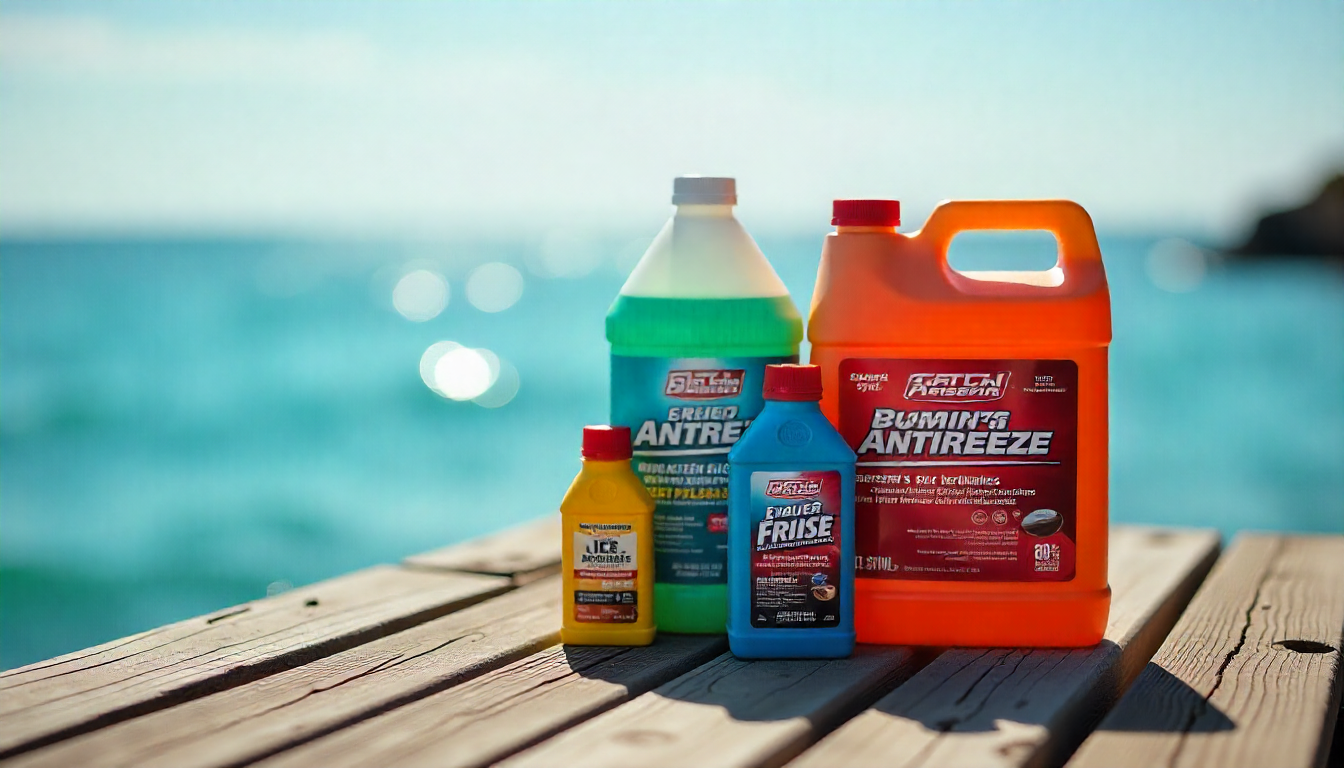Introduction: Why Marine Engine Antifreeze Matters
When it comes to maintaining your boat’s performance, choosing the best marine engine antifreeze is essential for preventing freezing damage and corrosion. This specialized coolant is designed to protect marine engines during harsh weather conditions, ensuring that your investment stays in top shape year-round. In this guide, we’ll explain what makes a good antifreeze, how it works, and what to look for when making your choice.
Understanding Antifreeze for Marine Engines
Antifreeze is not just about preventing freeze damage; it plays a vital role in corrosion protection, lubrication, and heat regulation. For marine applications, antifreeze needs to withstand the constant presence of water and temperature fluctuations. Modern formulas often include corrosion inhibitors to protect internal metal parts such as aluminum and cast iron, which are common in marine engines.
How Does Antifreeze Work?
Antifreeze works by lowering the freezing point and raising the boiling point of the coolant mixture inside your engine. When mixed with water, it creates a stable environment for the engine, preventing freezing in winter and overheating in summer. Additionally, antifreeze formulas use corrosion inhibitors to protect engine components from rust and scale buildup.
Types of Marine Engine Antifreeze
1. Ethylene Glycol-Based Antifreeze
Ethylene glycol is one of the most common components in engine coolant. It provides excellent freeze protection and thermal stability. However, it is toxic and should be handled carefully.
2. Propylene Glycol-Based Antifreeze
Often labeled as PG antifreeze, this alternative is less toxic and safer for marine environments. It’s commonly used in boats that require non-toxic solutions, especially in cases where antifreeze might leak into water.
3. Hybrid Organic Acid Technology (HOAT) Coolants
These advanced coolants include organic acids and corrosion inhibitors for longer-lasting protection. They are designed to provide a little extra defense against corrosion, especially for aluminum and cast iron components.
How to Choose the Best Marine Engine Antifreeze
Selecting the right antifreeze for your boat involves considering multiple factors:
Check Manufacturer Recommendations
Always start by consulting your engine manual. Many manufacturers specify the correct type of engine coolant or antifreeze to use.
Consider Climate Conditions
If you store your boat in areas with harsh winters, you need an antifreeze that can handle extreme freezing temperatures. Look for a freeze point rating of at least -50°F per gallon for maximum safety.
Evaluate Corrosion Protection
Corrosion is one of the biggest threats to marine engines. Ensure the antifreeze contains corrosion inhibitors designed for marine use. These additives prevent rust and scale, extending the life of your engine.
Toxicity and Environmental Impact
For boats stored near water or used in environmentally sensitive areas, propylene glycol-based antifreeze is a better option due to its low toxicity.
How to Use Antifreeze in Your Marine Engine
Using antifreeze correctly is just as important as choosing the right one. Follow these steps:
Step 1: Flush the Engine
Before adding new antifreeze, flush the engine thoroughly to remove old coolant and debris. Flushing ensures that the corrosion inhibitors in the new antifreeze can work effectively.
Step 2: Mix Properly
Most antifreeze products need to be diluted with water, typically in a 50/50 ratio. However, some come pre-mixed. Always check the label before using.
Step 3: Fill and Circulate
Pour the mixture into the cooling system, then run the engine to allow the antifreeze to circulate. This ensures full coverage and protection of all internal components.
Key Features of the Best Marine Engine Antifreeze
- Corrosion Inhibitors: These additives prevent rust and corrosion inside the engine.
- Freeze Protection: Look for antifreeze rated for your climate to avoid frozen coolant.
- Compatibility: Ensure it works with your engine type, whether gas or diesel.
- Toxicity Level: Propylene glycol-based coolants are safer for marine environments.
- Longevity: High-quality antifreeze lasts longer and requires fewer changes.
Common Mistakes to Avoid
- Using Regular Automotive Antifreeze
While it might seem similar, regular antifreeze lacks the marine-specific corrosion inhibitors necessary for saltwater conditions. Using regular antifreeze can lead to premature corrosion and damage. - Not Flushing Before Adding New Coolant
Failing to flush the system before adding fresh antifreeze can reduce the effectiveness of corrosion inhibitors and cause mixing issues. - Ignoring Freeze Ratings
Choosing a product with insufficient freeze protection can result in cracked blocks and expensive repairs.
Frequently Asked Questions (FAQs)
Q: How often should I change marine engine antifreeze?
A: It’s recommended to replace antifreeze every two to three years, or as specified by the engine manufacturer.
Q: Can I mix different types of antifreeze?
A: No, mixing antifreeze types can compromise performance and reduce corrosion protection. Always use the same type or fully flush before switching.
Q: Do I need to add water to antifreeze?
A: Some products come pre-mixed, while others require mixing. Check the label before adding to your engine.
Conclusion: Protect Your Engine with the Right Antifreeze
Choosing the best marine engine antifreeze is crucial for maintaining performance, preventing freeze damage, and protecting against corrosion. By selecting the right formula, using proper mixing ratios, and following correct application steps, you can extend the life of your marine engine and ensure worry-free boating for years to come. Always prioritize antifreeze with strong corrosion inhibitors, suitable freeze protection, and compatibility with your engine type.

 Best Marine Engine Antifreeze – How to Choose the Right One for Your Boat">
Best Marine Engine Antifreeze – How to Choose the Right One for Your Boat">
